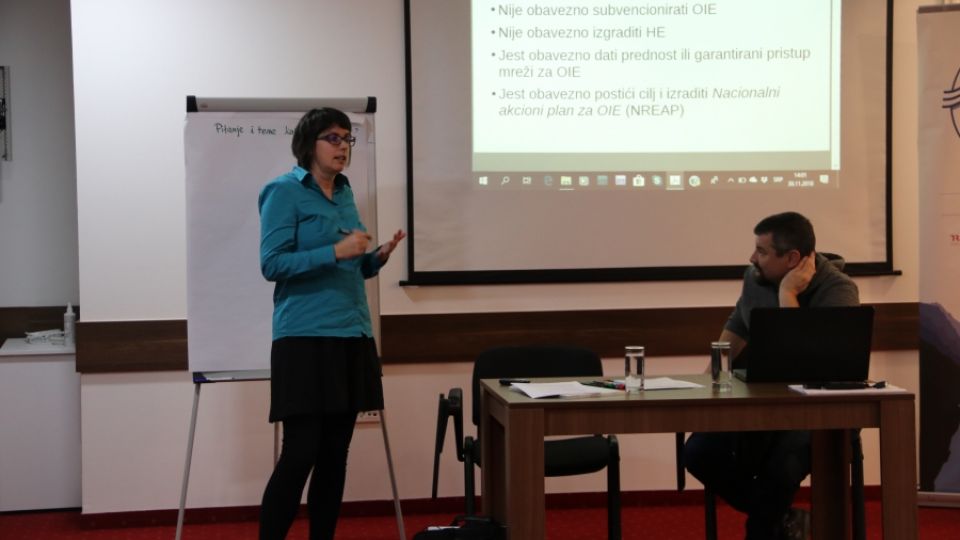Rivers in Bosnia and Herzegovina, as well as other Balkan countries are threatened by a massive boom of small hydropower plants construction. Activists who struggle to preserve these rivers are often under pressure from investors and the government officials who close to investors. The local communities are ignored. The strength of the defense of nature and people is in solidarity with civil society organizations, local communities, and individuals who support the struggle to the preservation of the rivers.
Members of ecological organizations and international experts, who support local communities, gathered last weekend in Banja Luka (BiH) to discuss the economic feasibility of concession fees and subsidies for small hydropower plants in Bosnia and Herzegovina. The presented incentive system does not have economic justification. According to the conclusion of the analysis, the social and financial losses cost up to 2 million Euros annually in Bosnia and Herzegovina.
"We are proving that small hydropower plants are not socially, ecologically, or economically acceptable nor justified, and we will continue to support local communities that are fighting against such projects."
"When we found out that a small hydropower plant would be built on the Doljanka river in the municipality of Jablanica, we were unaware that the investor had already obtained all the permits. No one from the local community on whose territory the construction was planned was involved in the process of public consultation. The Coalition for the Protection of the Rivers of Bosnia and Herzegovina is supported by ourselves and expresses our dissatisfaction with this project; and the experience from Kruščica was of great importance to us,” said Dženan Šašić, representative of the Association for Doljanka River.
The situation is no better in other countries of the region. The local communities of Serbian Stara Planina have resisted construction of small hydropower plants in the heart of a protected area for a long time. Also, local communities from Northern Montenegro have stood up against these harmful projects that threaten their way to life and limit access to freshwater.
“Local communities have organized themselves and raised their voice against these projects because their rights and potential for sustainable development is threatened. In Bosnia and Herzegovina, the Doljanka and Kruščica rivers are very similar to the examples of Komarača, Vinica, and Bukovica rivers in Montenegro. The location and views of people living along these rivers are completely ignored. They are not adequately informed or consulted about the projects planned in their environments. It is important that civil societies demonstrate solidarity and makes it clear to the authorities and to the energy lobbists that small hydropower projects are harmful to nature and people,” said Aleksandar Perovic from the Ecological Movement Ozon from Nikšić.
Workshops were prepared with the financial support of the Ministry of Foreign Affairs of the Czech Republic within the framework of the Transition Promotion Program, supporting the democracy and human rights using the Czech Republic's experience with social transition and democratization.







